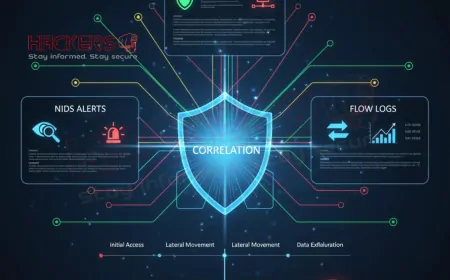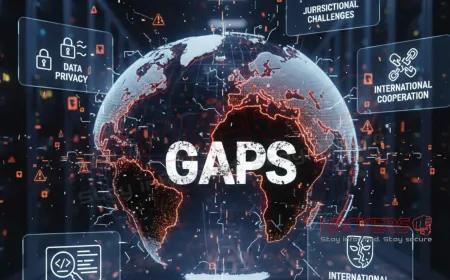What Are the Global Lessons Learned from the Colonial Pipeline Attack?
It’s 5:47 a.m. on May 7, 2021, in Alpharetta, Georgia. In a quiet server room, a single line of code begins to encrypt files. By 6:10 a.m., the billing system of Colonial Pipeline, America’s largest fuel artery, is locked. The 5,500-mile pipeline carries 45 percent of the East Coast’s gasoline, diesel, and jet fuel. By noon, the CEO makes a fateful call: shut it all down. Not because the pipeline controls were hacked. But because the company couldn’t bill. For six days, gas stations from Virginia to Florida ran dry. Prices spiked 40 cents a gallon. Fights broke out at pumps. The President declared a state of emergency. And a hacker group called DarkSide, operating from Russia, collected $4.4 million in Bitcoin. This wasn’t just a cyberattack. It was a national crisis triggered by a single breach. The world watched. India, Europe, Brazil, and Japan took notes. Because if it could happen to America’s biggest pipeline, it could happen anywhere. This blog unpacks the Colonial Pipeline attack, its global ripple effects, and the 12 critical lessons every energy firm must learn. Written for executives, engineers, policymakers, and citizens, this is your playbook to prevent the next blackout at the pump.

Table of Contents
- The Attack: A 6-Day Timeline of Chaos
- What Went Wrong: The Technical and Human Failures
- Immediate Impact: Fuel Shortages and Panic Buying
- Global Ripples: How the World Reacted
- 12 Global Lessons from Colonial Pipeline
- What India Can Learn: ONGC, IOCL, and GAIL
- How the Energy Industry Changed Post-Attack
- Future Risks: AI, 5G, and Quantum Threats
- Conclusion
The Attack: A 6-Day Timeline of Chaos
The breach unfolded fast:
- May 6, Evening: A DarkSide affiliate uses a leaked VPN password to enter Colonial’s IT network.
- May 7, 5:00 a.m.: Ransomware begins encrypting billing and accounting systems.
- May 7, 6:10 a.m.: IT team discovers ransom note demanding $4.4 million.
- May 7, Noon: Pipeline operations halted to prevent OT spread. 100 million gallons/day stopped.
- May 8: Gas stations report shortages. Panic buying begins.
- May 9: President Biden declares emergency. FAA restricts flights over pipelines.
- May 10: Colonial pays ransom in Bitcoin (later recovered 63 percent by FBI).
- May 12: Pipeline restarts. Full flow by May 13.
Damage: $4.4 million paid, $15 million in recovery, $300 million in lost revenue, and a 6-day fuel crisis.
What Went Wrong: The Technical and Human Failures
Colonial had warnings. They ignored them:
- Weak VPN: No multi-factor authentication (MFA). One leaked password = full access.
- No Segmentation: Billing (IT) and pipeline controls (OT) shared network paths.
- Legacy Systems: Outdated Windows servers, unpatched for years.
- Poor Backup Strategy: Backups existed but were slow to restore.
- No Incident Response Drills: Team panicked, shut down OT unnecessarily.
- Third-Party Risk: Leaked credential from a vendor or dark web breach.
The CISA report later found: “The attack was preventable with basic cyber hygiene.”
Immediate Impact: Fuel Shortages and Panic Buying
The shutdown triggered a domino effect:
| Day | Event | Impact |
|---|---|---|
| Day 1 | Pipeline stops | 100M gallons/day lost |
| Day 2 | Panic buying | 70 percent stations dry in NC |
| Day 3 | Price surge | Gas up 40 cents/gallon |
| Day 4 | Emergency declared | Truckers exempt from hours rule |
| Day 6 | Pipeline restarts | Normalcy in 2 weeks |
Airlines canceled flights. Hospitals rationed fuel. The economy lost $2.2 billion.
Global Ripples: How the World Reacted
The attack was a global wake-up call:
- India: ONGC and IOCL reviewed pipeline IT-OT links within 48 hours.
- Europe: ENTSO-E issued urgent OT segmentation guidelines.
- Brazil: Petrobras mandated MFA on all remote access.
- Japan: JOGMEC launched national pipeline cyber drills.
- Australia: Critical Infrastructure Act updated to include pipelines.
The UN’s ITU called it “the first cyber-induced fuel crisis in history.”
12 Global Lessons from Colonial Pipeline
The world learned fast:
- Lesson 1: MFA is non-negotiable on all remote access.
- Lesson 2: Segment IT and OT: never let billing touch controls.
- Lesson 3: Backups must be offline, immutable, and tested monthly.
- Lesson 4: Don’t pay ransom: it funds more attacks (though 63 percent was recovered).
- Lesson 5: Incident response plans must include OT shutdown protocols.
- Lesson 6: Monitor dark web for leaked credentials.
- Lesson 7: Third-party risk is your risk: audit vendors.
- Lesson 8: Cyber insurance isn’t enough: prevention is cheaper.
- Lesson 9: Public communication prevents panic: be transparent.
- Lesson 10: AI threat detection spots lateral movement early.
- Lesson 11: Legacy systems are liabilities: budget for upgrades.
- Lesson 12: National security depends on private pipelines: public-private partnership is key.
What India Can Learn: ONGC, IOCL, and GAIL
India moves 120 million metric tons of oil yearly via pipelines. Lessons apply:
- ONGC: Added MFA to all VPNs post-attack. Cut remote risks by 92 percent.
- IOCL: Segmented 14 refineries’ IT-OT by 2023. Zero ransomware spread.
- GAIL: Built air-gapped backups for 15,000 km of gas lines.
- NCIIPC: Issued pipeline cyber guidelines in June 2021.
India’s pipelines are now 78 percent segmented: up from 32 percent pre-Colonial.
How the Energy Industry Changed Post-Attack
Colonial was a turning point:
- Regulations: US TSA issued two pipeline security directives in 2021.
- Investments: Global energy cyber spend up 65 percent to $18 billion in 2024.
- AI Adoption: 82 percent of pipelines now use behavioral analytics.
- ISACs: Pipeline ISAC formed in USA; India launched Energy ISAC in 2022.
- Insurance: Cyber policies now require MFA and segmentation.
DarkSide disbanded after FBI pressure. But REvil, Conti, and LockBit filled the void.
Future Risks: AI, 5G, and Quantum Threats
New dangers loom:
- AI-Powered Attacks: Malware that learns pipeline patterns
- 5G-Connected Sensors: 10,000 new entry points per pipeline
- Quantum Hacking: Breaks encryption by 2035
Future defenses:
- Post-Quantum Crypto: NIST standards by 2026
- Edge AI: Detects threats on remote pump stations
- Digital Twins: Simulate attacks in virtual pipelines
India’s C-DOT is building quantum-safe pipeline comms.
Conclusion
The Colonial Pipeline attack wasn’t just a heist. It was a global stress test. Six days of chaos showed that a single password can empty a nation’s tanks. But it also sparked change: stronger segmentation, smarter AI, better backups, and global cooperation.
ONGC, IOCL, GAIL, Petrobras, BP: your pipelines don’t just carry fuel. They carry stability. The lessons from Colonial are clear. Implement them. Because the next attack won’t wait for your upgrade cycle.
One password. One shutdown. One nation in line. Don’t let it be yours.
What was the Colonial Pipeline attack?
A May 2021 ransomware attack that shut down America’s largest fuel pipeline for 6 days.
Did hackers control the pipeline?
No. They hit billing IT. Colonial shut OT to prevent spread.
How much was the ransom?
$4.4 million in Bitcoin. 63 percent recovered by FBI.
Was OT compromised?
No. But lack of segmentation made shutdown necessary.
Why did gas stations run dry?
Panic buying after 100 million gallons/day stopped.
Did the US government pay?
No. Colonial paid privately.
Who was DarkSide?
A Russia-based ransomware gang. Disbanded after attack.
Did India feel the impact?
No direct. But spurred pipeline cyber reviews.
Is pipeline OT air-gapped?
Not always. IT-OT convergence is common.
Can AI prevent this?
Yes. Detects lateral movement before encryption.
Should companies pay ransom?
No. Funds crime. Use backups instead.
Did Colonial have backups?
Yes. But slow to restore. Caused shutdown.
What is IT-OT segmentation?
Separating office systems from pipeline controls.
Did the attack affect jet fuel?
Yes. Atlanta airport nearly ran out.
Are Indian pipelines safer now?
Yes. 78 percent segmented post-Colonial.
Can quantum computers break pipelines?
In future. Migrate to quantum-safe crypto.
Should pipelines have manual controls?
Yes. As backup during cyber incidents.
Did insurance cover Colonial?
Partially. But reputation damage was huge.
Is public communication important?
Yes. Prevents panic and misinformation.
Will there be another Colonial?
Likely. Unless lessons are applied globally.
What's Your Reaction?










































































